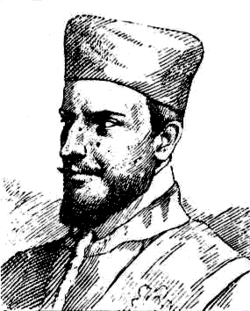

Didone is an opera by Francesco Cavalli, set to a libretto by Giovanni Francesco Busenello (later librettist for Claudio Monteverdi). The opera was first performed at Venice's Teatro San Cassiano during 1640.
Contents
The plot is based on Virgil's Aeneid (Book 4 in particular), though Busenello, in his second libretto for Cavalli, replaces Dido's tragic suicide of Virgil with a happy ending in which Dido marries Iarbas, King of the Getuli, who saves Dido from herself after Aeneas abandons her. The action is divided into a prologue and 3 acts.